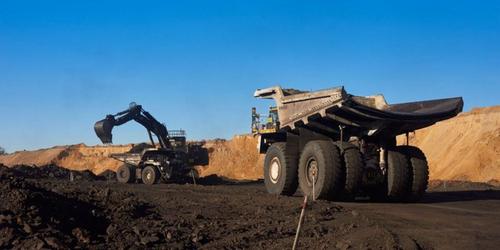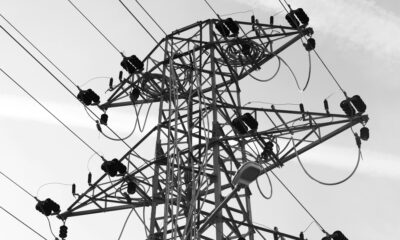Business
Coal-Fired Crisis: Why South Africa’s Fossil Fuel Addiction Could Cost the Nation Billions

A warming world is cooling off on coal and South Africa may soon feel the economic chill.
For decades, coal has kept the lights on in South Africa, and the economy humming. But a new report warns that this heavy reliance on fossil fuels could soon dim the nation’s economic prospects if urgent action isn’t taken. According to Net Zero Tracker, a climate watchdog, South Africa risks losing billions in trade and more than a million jobs if it doesn’t wean itself off coal fast enough to keep pace with global decarbonisation efforts.
Coal is King, But for How Long?
Around 80% of South Africa’s electricity is generated by coal, making it one of the most coal-dependent countries in the world. That dependency has helped power local industry and mining, but it now puts the country in a uniquely precarious position. As major trading partners roll out climate policies and carbon taxes, coal-heavy exports could be slapped with penalties, or worse, rejected altogether.
Net Zero Tracker’s report highlights a sobering reality: 78% of South Africa’s exports, valued at over $135 billion, go to countries with net-zero climate targets. These markets, which include economic giants like the EU, UK, and China — are tightening rules around carbon-intensive imports, placing South African goods like steel, aluminium and cement directly in the crosshairs.
Europe’s Carbon Border Tax is the Canary in the Coal Mine
One major threat is the European Union’s Carbon Border Adjustment Mechanism (CBAM). Adopted in 2022, CBAM is essentially a carbon tariff. It ensures that imported goods face the same carbon costs as EU-produced ones. It’s currently in a trial phase, but by 2026, it’ll be fully enforceable, and South African exporters could feel the pinch.
The South African Reserve Bank has already flagged the danger, projecting that carbon-based tariffs could cut national exports by up to 10%. Trade with the EU alone could shrink by 4% by 2030 if coal use continues unchecked.
The Stakes Are Sky-High for Jobs and Trade
This isn’t just an economic issue. It’s a jobs issue. According to Net Zero Tracker, over 1.2 million domestic jobs are tied to exports to countries with net-zero targets. A failure to adapt could trigger job losses across sectors that rely on international trade from manufacturing and mining to logistics and engineering.
In a country where unemployment hovers around 32%, that’s a risk the government simply can’t afford.
South Africa Has the Tools, But Not the Time
The good news? South Africa isn’t helpless. The country has the building blocks to lead in a clean energy future. It has an abundance of sun and wind for renewable energy, critical minerals like platinum and manganese that are vital to green tech, and seats at key global climate negotiation tables.
John Lang of Net Zero Tracker puts it plainly: “South Africa has the tools to pivot.” The challenge lies in the political will, financial investment, and public-private coordination required to make the shift.
A National Just Transition Plan, But Is It Enough?
The government has already crafted a Just Transition Framework, a roadmap for phasing out coal in a way that protects workers and communities. But critics argue implementation is slow, with Eskom’s dependency on coal still dominating the grid and new renewable energy projects facing bureaucratic delays.
Public frustration is mounting. On social media, many South Africans question why the country isn’t moving faster to embrace clean energy when load shedding and pollution from coal plants already damage quality of life.
A Fork in the Road
South Africa now stands at a crossroads. The choice is stark: cling to coal and risk being left behind in a rapidly greening global economy, or seize the moment to rebrand as a supplier of low-emission goods — and unlock new markets and industries.
For a nation with rich natural resources, skilled labour, and a history of industrial resilience, this could be the start of a greener, more prosperous chapter. But time is running out.
{Source: IOL}
Follow Joburg ETC on Facebook, Twitter , TikTok and Instagram
For more News in Johannesburg, visit joburgetc.com



























